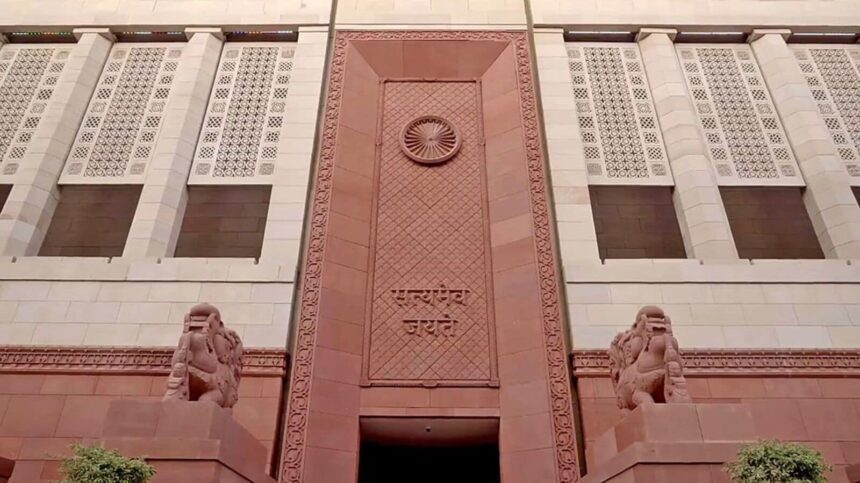Latest Politics News: January 14, 2025 – Key Updates and Analysis
In the ever-evolving landscape of global politics, it’s crucial to stay updated with the latest developments that affect our societies and economies. Today, January 14, 2025, has brought significant news from various political arenas—ranging from key policy discussions in India to strategic accusations in the electoral landscape. Below is a detailed rundown of the most important political events and their implications.
Centre Discusses Easing MSME Compliance Burden
Timestamp: 08:44 PM IST
The Indian government has initiated talks aimed at easing compliance burdens for Micro, Small, and Medium Enterprises (MSMEs), acknowledging the sector’s critical role in employing over 216 million individuals. As MSMEs are vital for economic growth, these discussions highlight the government’s commitment to fostering a supportive environment for small businesses. Simplifying compliance can potentially empower MSMEs to thrive, expand their operations, and contribute to India’s economic recovery post-pandemic.
NCP’s Decision on Municipal Elections Pending
Timestamp: 08:16 PM IST
The Nationalist Congress Party (NCP), led by Sharad Pawar, is at a crossroads regarding its strategy for the upcoming municipal elections in Maharashtra. Following a lackluster performance in the recent Assembly elections as part of the Maha Vikas Aghadi coalition, the party has indicated that a decision on whether to contest jointly with Shiv Sena or separately will be made in the next 8 to 10 days. This indecision reflects the challenges facing political alliances, especially in the wake of electoral setbacks.
Shiv Sena Leadership Criticism
Timestamp: 06:20 PM IST
In a controversial statement, Shiv Sena MP Naresh Mhaske criticized fellow party member Sanjay Raut for allegedly sidelining Uddhav Thackeray and swaying away from the party’s Hindutva ideology. Mhaske’s remarks underline the ongoing infighting within Shiv Sena and raise questions about its future direction and unity. The tensions within the party could have significant implications for its electoral strategies moving forward.
Trump’s Inauguration Sparks Corporate Interest
Timestamp: 04:15 PM IST
In a rather surprising development, the upcoming inauguration of Donald Trump has garnered attention from corporate America. CEOs are reportedly vying for invitations to exclusive post-inaugural balls, highlighting Trump’s continued influence and relevance in American politics. This fascination with Trump’s political comeback may signal a future where corporate interests align closely with political personalities, reshaping the landscape of political financing and influence.
Allegations of Vote-Buying in Delhi
Timestamp: 02:10 PM IST
Delhi Chief Minister Arvind Kejriwal has accused the Bharatiya Janata Party (BJP) of attempting to buy votes by distributing gifts such as gold chains in certain colonies ahead of the elections. Kejriwal portrayed AAP as the growing favorite in Delhi’s political arena, predicting a stable government with a clear majority. His assertions not only reflect the intense electoral rivalry but also underscore the ongoing concerns regarding ethical campaign practices in Indian politics.
Insights from Data Science on Election Predictions
Timestamp: 12:54 PM IST
Renowned data scientist Seth Stephens-Davidowitz has suggested that traditional polling methods may misinform predictions about elections. According to him, public interest, as indicated through Google search trends, may provide stronger predictions about electoral outcomes. This assertion invites a reevaluation of how electoral campaigns gauge public sentiment and interact with voters.
Elon Musk Stirs Debate in Germany
Timestamp: 11:22 AM IST
In an unexpected twist, Elon Musk’s perceived affinity for Germany’s far-right Alternative for Germany (AfD) party has caused considerable controversy. While Musk has labeled the party as moderate, widespread skepticism remains among German officials and the public. This juxtaposition raises essential questions about the appropriateness of celebrity endorsements in politics and the potential ramifications of such alignments on public discourse and policy.
Conclusion
As we navigate through January 14, 2025, these developments depict a politically charged environment both in India and globally. From discussions on policy reforms for MSMEs to critical intraparty conflicts in Maharashtra, each event serves as a crucial reminder of the complexities and interconnected nature of political systems. It remains vital for citizens and stakeholders to engage with these developments to influence the democratic process and stay informed about the numerous factors that shape our political landscape.
Stay tuned for more updates and analysis as the political climate continues to evolve.










